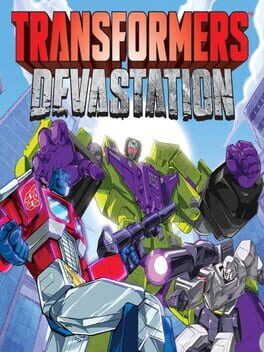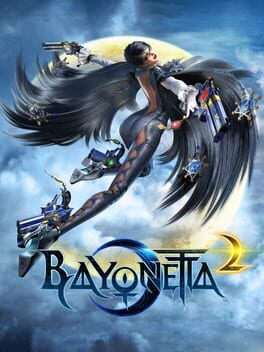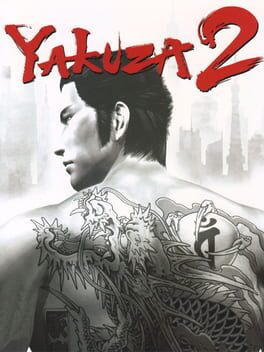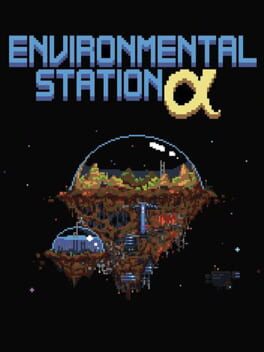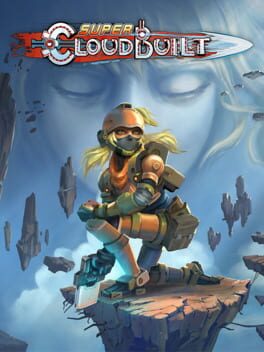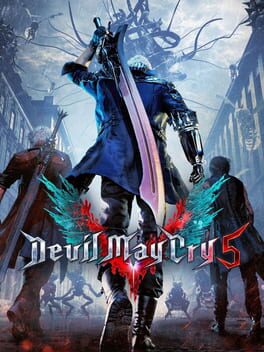ProudLittleSeal
3825 Reviews liked by ProudLittleSeal
Bayonetta 2
2014
Probably the most disappointing game I've ever played and I feel like I'm insane for not liking it. The game's difficulty felt like a joke compared to 1, most of the bosses are annoying damage sponges to incentivize the game's devil trigger mechanic, and most of the returning cast isn't that well characterized compared to 1. It makes me sad because it has some stuff that I really like, such as the improved color palette and being able to fight enemies from both Paradiso and Inferno. Really hope Bayonetta 3 is an improvement from this.
Yakuza 2
2006
Imagine having your first game be a mega success and your evil corporate publisher tasks you just a single year to develop a sequel to that said game, with the pretenses that every sequel comes with: A larger scope, refining features to what was established, and justifying a more grandiose narrative to your said first game. Most of the time, sequels with that obscenely unrealistic time crunch that leads to developer nightmares turn out to become disasters, but every now and then, you get that one game that survives that becomes somewhat of a miracle game: Yakuza 2.
Yakuza 2 succeeds in not only being a great sequel to Yakuza 1, but a great game in it's own right. Defining what the Yakuza franchise would become years down the line and is still seen as one of the best games in the series. Everything here has been improved from its open-world to its combat to even it's narrative.
Right to the first tutorial the game throws at me, I felt just how instantaneously better the game felt to play. He still retains some of the stiffness found in the original, but Kiryu's basic move set is much faster and moves locked from the original became standard such as moves that help Kiryu turn around on a dime, while still keeping that same impact felt from every punch like in the original. Not only does the combat feel more flexible, but the game balances the AI to accommodate this new moveset, as enemies are a lot more aggressive this time around and come together more in pairs, leading to faster-paced gameplay but with a refreshing new challenge on top of it. One of my favorite examples of this newfound challenge is the Goro Majima fight early on in the game, taking place in the underground arena which restricts your health items and the only equipped item you can have is an infinite use brass knuckle. You are forced not only to learn his moveset but react to his fast dodges as you try to keep on him building your heat meter, making it so you can land your powerful heat moves once built. This leads to a boss fight that's challenging, kinetic, intense, and easily one of the strongest highlights of the game for me, showcasing every improvement made to the combat to create a surprisingly good boss fight.
Sadly, there are some changes to the core gameplay I'm not exactly fond of and can lead to some frustrating moments. QTE events were added to certain scenarios, and for some reason the timing on them is absurdly strict, leading to the game taking cheap potshots at you if you don't know when they're coming. This can also be applied to enemies grabbing you, as in the original they were fairly easy to mash out of, but not once in this game did I successfully mash out of a grab as they require much faster mashing in this game. Call me slow fingers I suppose, but the mash time out of these grabs were ridiculously tight, and lead to cheap damage much like in the strict QTE segments. Then there are the boss fights that had some weird balancing choices. There was this one mid-game boss that had a grand total of six health bars that not only were hard to dwindle away, but the boss itself made it hard to do so. He had invincible attacks, couldn't be grabbed, and a second phase with long weapon-based attacks that were also invincible of course, leading to a boss fight that dragged on far too long and was a strange difficulty spike for a mid-game challenge. Despite these complaints though, I still stand by Yakuza 2 is a far better playing game than its original counterpart, but it still has some kinks that needed to be ironed out.
Narratively speaking though, whoah boy. Cutscenes are no longer plagued by an atrocious early 2000's dub and are left untouched and sub, letting its native speaking and better-directed voice actors shine. Cutscenes are also simply better directed too, leading to some clever cinematography tricks and music cues to give off a noir style feel to them. The characters here are also vastly well written too, with the developers not only exploring more to the characters already established but even having fun with some new ones. Ryuji Goda, the rival counterpart to Kiryu in this game, just absolutely steals the spotlight every time he's on-screen with his fun dialogue and diabolical delivery. He's a fantastic villain and easily my favorite character. Kaoru Sayama is an awesome new side character that plays off Kiryu's stoic tough-guy attitude well, leading to some genuinely heartfelt moments between the two, whether it be drama or (to my surprise considering this is Kiryu we're dealing with here) romance. The story as a whole is just packed with more suspense that follows up from the first game while telling an interesting new story here. I love the new characters and twists the game establishes chapter by chapter. I'd say the last chapter does go a bit overboard though. Its climax had like 10 plot twists jammed at once with no brevity that did make me roll my eyes a few times, but still, it leads to one of the hypest moments of the game for me. Its story left me intrigued and entertained all the way through, retaining a lot of the qualities I found so compelling when I played Yakuza 0, so I can say for the most part it's a success.
While both its narrative and gameplay may have some downsides to its improvements, one thing that is just flat-out improved is its open-world... or should I say open-worlds. Not only does Yakuza 2 add more new activities to the already established Kamurocho, but adds in a smaller but still densely packed new city, Sotenbori. Both these cities not only have more activities to do on the side of them, but the side stories you can find here are also better too. They feature more steps to them and have comedic writing to make them more memorable, leading to me actively seeking them out more than in the original. They are still timed events that can only be accessed depending on the chapter of the story you are in which is unfortunate but are much more rewarding to seek out, making both cities just as large as Kamurocho felt in the original while giving said Kamurocho a sense of growth in its world-building.
I seriously can't stress enough just how better this game overall just really is. It not only retains what I did like from the original, but it also exceeds all expectations I had for a sequel, which was all the more shocking to me when I read that this game only had a single year of development time. With the scope this game was aiming for, this game could have easily become a mess, and in some ways that messy rushed development time can be seen in the final product. But despite that Yakuza 2 persevered even when the deck was fully stacked against it, and what came out of it can only be described as a miracle, which is why I can say undoubtedly that Yakuza 2 is a miracle game.
Yakuza 2 succeeds in not only being a great sequel to Yakuza 1, but a great game in it's own right. Defining what the Yakuza franchise would become years down the line and is still seen as one of the best games in the series. Everything here has been improved from its open-world to its combat to even it's narrative.
Right to the first tutorial the game throws at me, I felt just how instantaneously better the game felt to play. He still retains some of the stiffness found in the original, but Kiryu's basic move set is much faster and moves locked from the original became standard such as moves that help Kiryu turn around on a dime, while still keeping that same impact felt from every punch like in the original. Not only does the combat feel more flexible, but the game balances the AI to accommodate this new moveset, as enemies are a lot more aggressive this time around and come together more in pairs, leading to faster-paced gameplay but with a refreshing new challenge on top of it. One of my favorite examples of this newfound challenge is the Goro Majima fight early on in the game, taking place in the underground arena which restricts your health items and the only equipped item you can have is an infinite use brass knuckle. You are forced not only to learn his moveset but react to his fast dodges as you try to keep on him building your heat meter, making it so you can land your powerful heat moves once built. This leads to a boss fight that's challenging, kinetic, intense, and easily one of the strongest highlights of the game for me, showcasing every improvement made to the combat to create a surprisingly good boss fight.
Sadly, there are some changes to the core gameplay I'm not exactly fond of and can lead to some frustrating moments. QTE events were added to certain scenarios, and for some reason the timing on them is absurdly strict, leading to the game taking cheap potshots at you if you don't know when they're coming. This can also be applied to enemies grabbing you, as in the original they were fairly easy to mash out of, but not once in this game did I successfully mash out of a grab as they require much faster mashing in this game. Call me slow fingers I suppose, but the mash time out of these grabs were ridiculously tight, and lead to cheap damage much like in the strict QTE segments. Then there are the boss fights that had some weird balancing choices. There was this one mid-game boss that had a grand total of six health bars that not only were hard to dwindle away, but the boss itself made it hard to do so. He had invincible attacks, couldn't be grabbed, and a second phase with long weapon-based attacks that were also invincible of course, leading to a boss fight that dragged on far too long and was a strange difficulty spike for a mid-game challenge. Despite these complaints though, I still stand by Yakuza 2 is a far better playing game than its original counterpart, but it still has some kinks that needed to be ironed out.
Narratively speaking though, whoah boy. Cutscenes are no longer plagued by an atrocious early 2000's dub and are left untouched and sub, letting its native speaking and better-directed voice actors shine. Cutscenes are also simply better directed too, leading to some clever cinematography tricks and music cues to give off a noir style feel to them. The characters here are also vastly well written too, with the developers not only exploring more to the characters already established but even having fun with some new ones. Ryuji Goda, the rival counterpart to Kiryu in this game, just absolutely steals the spotlight every time he's on-screen with his fun dialogue and diabolical delivery. He's a fantastic villain and easily my favorite character. Kaoru Sayama is an awesome new side character that plays off Kiryu's stoic tough-guy attitude well, leading to some genuinely heartfelt moments between the two, whether it be drama or (to my surprise considering this is Kiryu we're dealing with here) romance. The story as a whole is just packed with more suspense that follows up from the first game while telling an interesting new story here. I love the new characters and twists the game establishes chapter by chapter. I'd say the last chapter does go a bit overboard though. Its climax had like 10 plot twists jammed at once with no brevity that did make me roll my eyes a few times, but still, it leads to one of the hypest moments of the game for me. Its story left me intrigued and entertained all the way through, retaining a lot of the qualities I found so compelling when I played Yakuza 0, so I can say for the most part it's a success.
While both its narrative and gameplay may have some downsides to its improvements, one thing that is just flat-out improved is its open-world... or should I say open-worlds. Not only does Yakuza 2 add more new activities to the already established Kamurocho, but adds in a smaller but still densely packed new city, Sotenbori. Both these cities not only have more activities to do on the side of them, but the side stories you can find here are also better too. They feature more steps to them and have comedic writing to make them more memorable, leading to me actively seeking them out more than in the original. They are still timed events that can only be accessed depending on the chapter of the story you are in which is unfortunate but are much more rewarding to seek out, making both cities just as large as Kamurocho felt in the original while giving said Kamurocho a sense of growth in its world-building.
I seriously can't stress enough just how better this game overall just really is. It not only retains what I did like from the original, but it also exceeds all expectations I had for a sequel, which was all the more shocking to me when I read that this game only had a single year of development time. With the scope this game was aiming for, this game could have easily become a mess, and in some ways that messy rushed development time can be seen in the final product. But despite that Yakuza 2 persevered even when the deck was fully stacked against it, and what came out of it can only be described as a miracle, which is why I can say undoubtedly that Yakuza 2 is a miracle game.
Demon's Souls
2009
Demon's Souls
2009
This review contains spoilers
From one play-through alone, this game has become my second-favorite Fromsoft title. It may be the easiest game in the series, but the beauty of Demon's Souls lies in it's restriant, consistency, and atmospheric immersion. The level design has this sense of verticality and realism that can't be found anywhere else, not to mention the non-linearity the hub world allows. I love Dark Souls, but when comparing Anor Londo's schizophrenic and confusing level layout and Boletaria's tight, realistic approach to storming a castle, the difference is night and day.
Even though the bosses are relatively easy they feel so unique and have a completely different vibe that the other games have used elements of in some of their bossfights but not to the same affect. Don't get me wrong, Soulsborne has amazing bosses across the table-only one boss from Demon's, the Tower Knight, barely even makes it to my top 10-but these bosses still feel much more different from the rest, puzzling tests of wit, or cinematic, or strikingly depressing. Leechmonger and the Adjudicator have these unique vertical arenas where you can approach the fight in different ways. The aforementioned Tower Knight is an intimidating and multi-layered fight, where you have to defeat a wave of archers before facing the Knight alone by exploiting his weak points. Maiden Aestrea doesn't even fight you-rather her followers defend their saint until their last breath. She commits suicide with bitter comtempt, anger, and genuine sadness in her voice, having just seen you kill the very people she was trying to save by becoming a Demon. The Storm King is more cinematic where you use a wind sword to fell a gargantuan monster who barely even acknowledges your existence with it's sheer size, creating powerful gusts of wind that blow you away. Dragon God seems like this climactic rematch built up from the opening animation, but subverts these notions by having you effectively euthanize it after restraining it. (Because really, how else would you take out a towering behemoth? With a fucking pool noodle of a sword?) The final boss of the game is a shambling abomination that can barely muster the strength to flail at you. Each boss is visually unique and each have their own weaknesses to exploit or explore a certain gimmick, and each help set the downtrodden mood and melancholy tone of the game. I would go so far to say that there are no bad bosses in the game. Some underwhelming or easy, yes, but none truly bad.
You can see the groundwork being laid for the rest of the series as well as inspirations for it's sequels, but at the same time Demon's Souls still took bold risks and still has many unique ideas that make it worth playing 12 years later. Where other games would dump tutorial levels and screens on you while holding your hand through the game, Demon’s Souls kicked you into a starting level against a boss that’s supposed to kill you. Where most games were beautiful, bright, and pushed console hardware to their limits, Demon’s Souls was dark, muted, and fantastically reserved in it's artstyle to set it apart. Where other games had flashy combat with hundreds of (admittedly shallow) options, Demon's introduced a methodical and restrained combat system that limited the player's actions greatly through a stamina bar. Where most games had insane boss fights with over-the-top presentation, the bosses in Demon's Souls felt melancholy and dreary. Where other games had a bombastic, catchy, adrenaline-fueled soundtrack, Demon’s Souls was silent except for the growls of enemies and the clanking of swords; Boss themes were subtle, quiet, and ambient. Most games would introduce large exposition dumps and force a story you might not care about onto a player, Demon's Souls leaves it's well-realized lore in the background as an afterthought that doesn't get in the way of gameplay. Most games had a large cast of supporting characters, but Demon’s Souls friendly NPCs were few and far between and could be killed like any other enemy. Where some games were forgiving, Souls was not: mechanics such as World Tendency and the soul/human form punished the unprepared or ignorant player, making a game where to survive one must remain ever-vigilant and assess every situation and room. These "most" games aren’t bad by any means-in fact quite the opposite, they can be incredible-but Demons Souls is simply so different and unique, even when compared to its spiritual sequels.
The best example of Demon's rejection of the modern video game environment is in the Moonlight Greatsword, which has been a staple in every Fromsoft game. In the King's Field series, it was a legendary weapon, a crucial macguffin in the plot of the games. Here, it is a forgotten relic of the past: an afterthought swallowed by slugs, in a cesspit at the bottom of the world.
More than any other Fromsoft game, Demon's souls is a fading medieval fantasy slowly being swallowed by colorless fog. Much like Miyazaki's inspiration for his storytelling, it's a fairytale book written in undecipherable language, making for a game that never pulls back the curtain all the way. Despite how dreary the game can get, at the end of journey there is hope and optimism to be had, a hope which the player can snuff out if they feel inclined to do so. The sense of adventure, progression, and immersion from this game is more enticing than any other game I've ever played. I went from a frail nobody seeking glory to a feared, competent hero that can best any demon with ease.
Demon's Souls is a game rich with atmosphere and sheer passion that took risks because it was believed to be a faliure before it even released. Despite the odds, Miyazaki had a vision, and his Little Action-RPG that Could eventually carved a path for one of the most influential franchises in the somewhat short history of gaming.
Sure Dragon God isn't the best boss (even though I personally enjoyed it,) World Tendency is not very well-integrated into the game despite being a cool concept, it's late game is extremely easy when compared to it's successors, and 5-2 would've been 10 times better if you could actually fucking roll in the swamp. But at the end of the day, Demon's Souls is more than just the "Souls Prototype." It's a clear love letter to gaming, a courageous leap forward for the industry that no other Souls game would have to struggle with. It burdened the weight of being the first game of it's kind, and it is a damn fucking shame that it was so overlooked by it's younger cousin up until last year.
(I emulated on RPCS3 at a high resolution with a 60 fps patch and it ran smoothly. One problem was that the audio would often crackle if too many sounds were playing at once, and I couldn't fix it. Vsync is a must for higher resolutions, and one specific GPU setting MUST be on in order for the game to render.)
Even though the bosses are relatively easy they feel so unique and have a completely different vibe that the other games have used elements of in some of their bossfights but not to the same affect. Don't get me wrong, Soulsborne has amazing bosses across the table-only one boss from Demon's, the Tower Knight, barely even makes it to my top 10-but these bosses still feel much more different from the rest, puzzling tests of wit, or cinematic, or strikingly depressing. Leechmonger and the Adjudicator have these unique vertical arenas where you can approach the fight in different ways. The aforementioned Tower Knight is an intimidating and multi-layered fight, where you have to defeat a wave of archers before facing the Knight alone by exploiting his weak points. Maiden Aestrea doesn't even fight you-rather her followers defend their saint until their last breath. She commits suicide with bitter comtempt, anger, and genuine sadness in her voice, having just seen you kill the very people she was trying to save by becoming a Demon. The Storm King is more cinematic where you use a wind sword to fell a gargantuan monster who barely even acknowledges your existence with it's sheer size, creating powerful gusts of wind that blow you away. Dragon God seems like this climactic rematch built up from the opening animation, but subverts these notions by having you effectively euthanize it after restraining it. (Because really, how else would you take out a towering behemoth? With a fucking pool noodle of a sword?) The final boss of the game is a shambling abomination that can barely muster the strength to flail at you. Each boss is visually unique and each have their own weaknesses to exploit or explore a certain gimmick, and each help set the downtrodden mood and melancholy tone of the game. I would go so far to say that there are no bad bosses in the game. Some underwhelming or easy, yes, but none truly bad.
You can see the groundwork being laid for the rest of the series as well as inspirations for it's sequels, but at the same time Demon's Souls still took bold risks and still has many unique ideas that make it worth playing 12 years later. Where other games would dump tutorial levels and screens on you while holding your hand through the game, Demon’s Souls kicked you into a starting level against a boss that’s supposed to kill you. Where most games were beautiful, bright, and pushed console hardware to their limits, Demon’s Souls was dark, muted, and fantastically reserved in it's artstyle to set it apart. Where other games had flashy combat with hundreds of (admittedly shallow) options, Demon's introduced a methodical and restrained combat system that limited the player's actions greatly through a stamina bar. Where most games had insane boss fights with over-the-top presentation, the bosses in Demon's Souls felt melancholy and dreary. Where other games had a bombastic, catchy, adrenaline-fueled soundtrack, Demon’s Souls was silent except for the growls of enemies and the clanking of swords; Boss themes were subtle, quiet, and ambient. Most games would introduce large exposition dumps and force a story you might not care about onto a player, Demon's Souls leaves it's well-realized lore in the background as an afterthought that doesn't get in the way of gameplay. Most games had a large cast of supporting characters, but Demon’s Souls friendly NPCs were few and far between and could be killed like any other enemy. Where some games were forgiving, Souls was not: mechanics such as World Tendency and the soul/human form punished the unprepared or ignorant player, making a game where to survive one must remain ever-vigilant and assess every situation and room. These "most" games aren’t bad by any means-in fact quite the opposite, they can be incredible-but Demons Souls is simply so different and unique, even when compared to its spiritual sequels.
The best example of Demon's rejection of the modern video game environment is in the Moonlight Greatsword, which has been a staple in every Fromsoft game. In the King's Field series, it was a legendary weapon, a crucial macguffin in the plot of the games. Here, it is a forgotten relic of the past: an afterthought swallowed by slugs, in a cesspit at the bottom of the world.
More than any other Fromsoft game, Demon's souls is a fading medieval fantasy slowly being swallowed by colorless fog. Much like Miyazaki's inspiration for his storytelling, it's a fairytale book written in undecipherable language, making for a game that never pulls back the curtain all the way. Despite how dreary the game can get, at the end of journey there is hope and optimism to be had, a hope which the player can snuff out if they feel inclined to do so. The sense of adventure, progression, and immersion from this game is more enticing than any other game I've ever played. I went from a frail nobody seeking glory to a feared, competent hero that can best any demon with ease.
Demon's Souls is a game rich with atmosphere and sheer passion that took risks because it was believed to be a faliure before it even released. Despite the odds, Miyazaki had a vision, and his Little Action-RPG that Could eventually carved a path for one of the most influential franchises in the somewhat short history of gaming.
Sure Dragon God isn't the best boss (even though I personally enjoyed it,) World Tendency is not very well-integrated into the game despite being a cool concept, it's late game is extremely easy when compared to it's successors, and 5-2 would've been 10 times better if you could actually fucking roll in the swamp. But at the end of the day, Demon's Souls is more than just the "Souls Prototype." It's a clear love letter to gaming, a courageous leap forward for the industry that no other Souls game would have to struggle with. It burdened the weight of being the first game of it's kind, and it is a damn fucking shame that it was so overlooked by it's younger cousin up until last year.
(I emulated on RPCS3 at a high resolution with a 60 fps patch and it ran smoothly. One problem was that the audio would often crackle if too many sounds were playing at once, and I couldn't fix it. Vsync is a must for higher resolutions, and one specific GPU setting MUST be on in order for the game to render.)
Super Metroid is a lot like Cap'n Jazz: they dropped a really influential LP in the late 90s, and everybody loved it so much that dozens of people built careers around ripping it off. Every once in a while though, something comes along that truly seems "influenced by" rather than "stealing everything that isn't nailed down from" their respective ancestors: Environmental Station Alpha is once such case. It's spooky, and looks nice; it's got stellar mechanics and a cohesive world. ESA changes enough from the Metroid formula to feel fresh, but it just absolutely nails the alien experience that makes playing and exploring the gameworld so compelling. I may even be doing ESA a disservice by mentioning Super Metroid so often, because it can stand on its own legs among classic games: Environmental Station Alpha is just great.
Super Cloudbuilt
2017
Tough to recommend, but you'll know if this is your kinda shit by watching some gameplay. Super Cloudbuilt hands you a toolset that empowers and humbles you with alternating current, which probably has niche appeal.
I haven't played a game that enables this much speed and control since Thumper, and that's no mean feat. It's worth a look if you're a fan of responsive movement with immense mechanical depth.
I haven't played a game that enables this much speed and control since Thumper, and that's no mean feat. It's worth a look if you're a fan of responsive movement with immense mechanical depth.
Super Cloudbuilt
2017
Devil May Cry 5
2019
Devil May Cry 5
2019
The absolute peak of the action game genre. 3 distinct and incredibly fun characters, a compelling story with lots of great moments, a rockin' soundtrack, tons of enemies, and fun (if somewhat forgettable) bosses. The few minor complaints I have would be that playing V hurts my fingers, Vergil and Trish didn't make the jump to the RE engine very well, and the co-op system is pretty underutilized. I also would've liked more wacky cutscenes like in DMC 3 but I appreciated the more serious tone since it was done rather well and it made the few crazier scenes stand out more. It certainly met my expectations.
